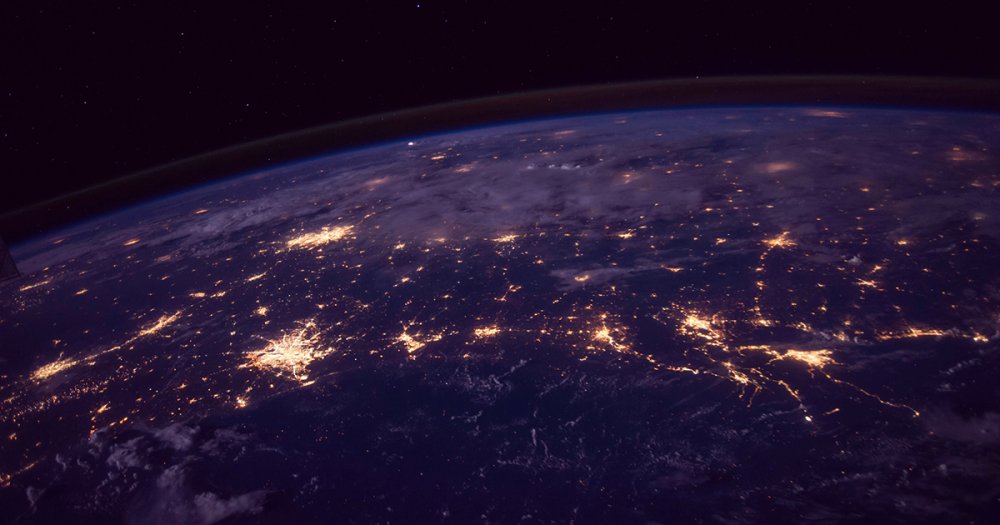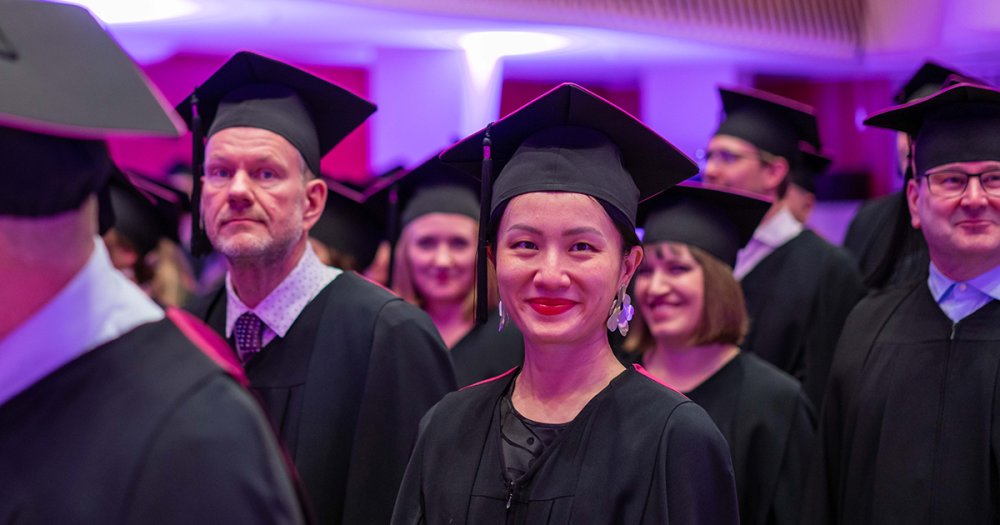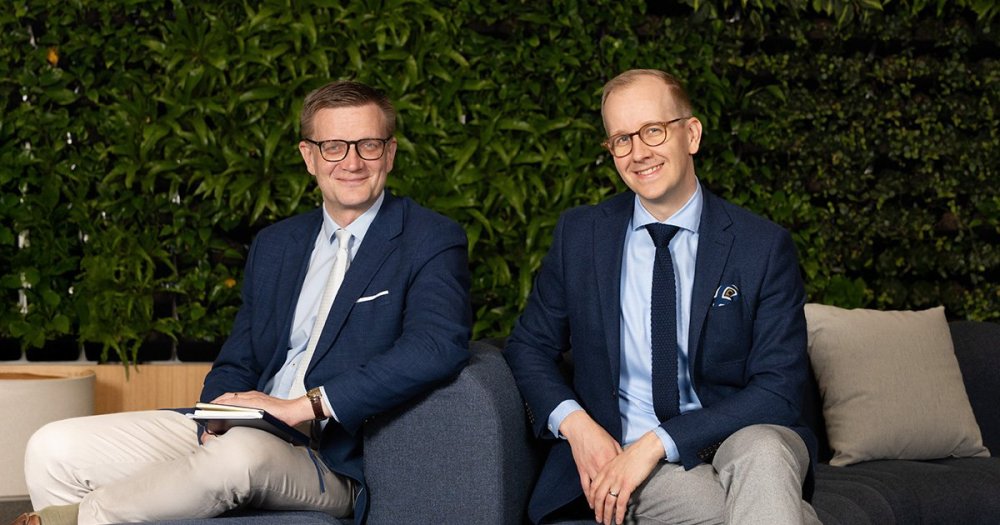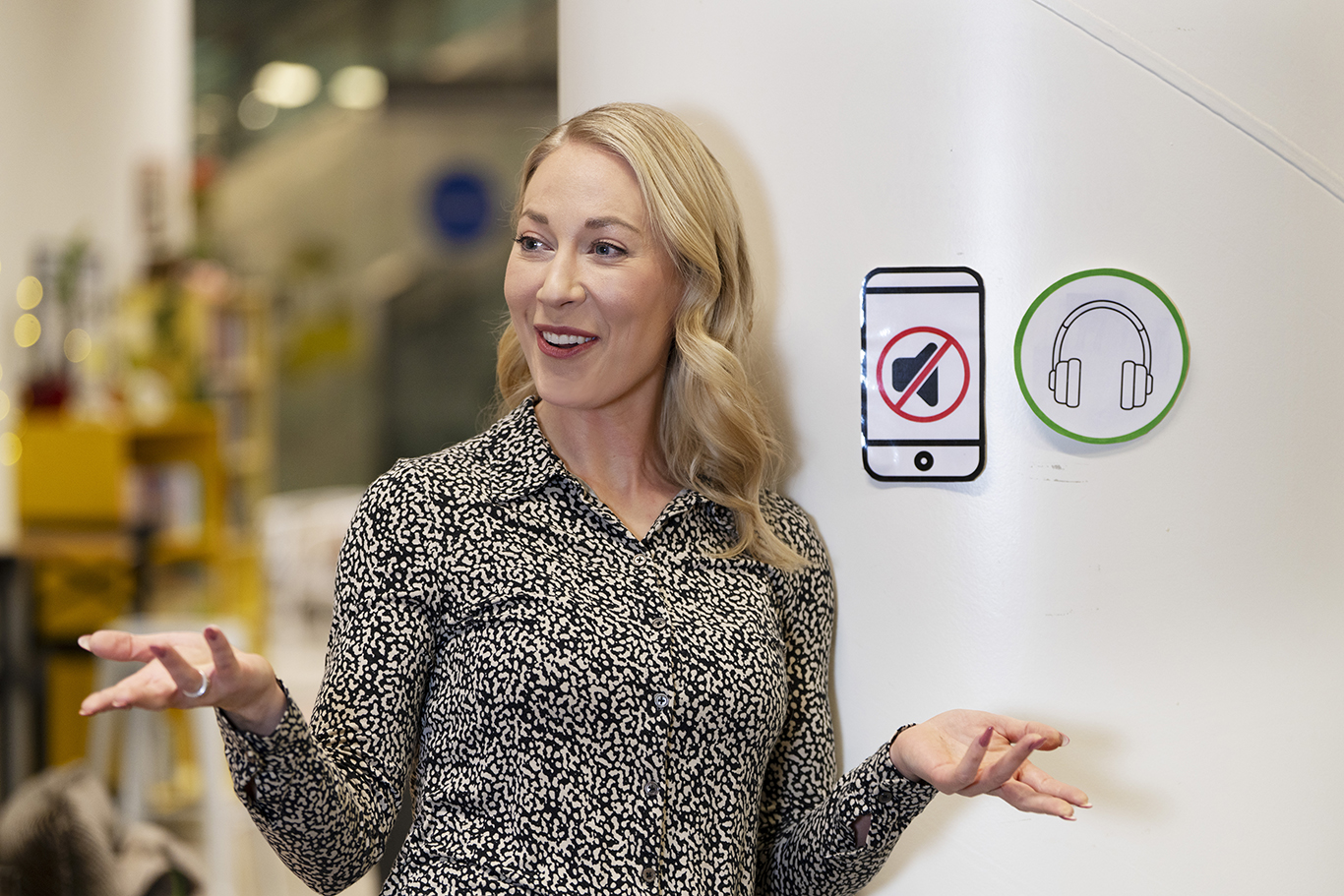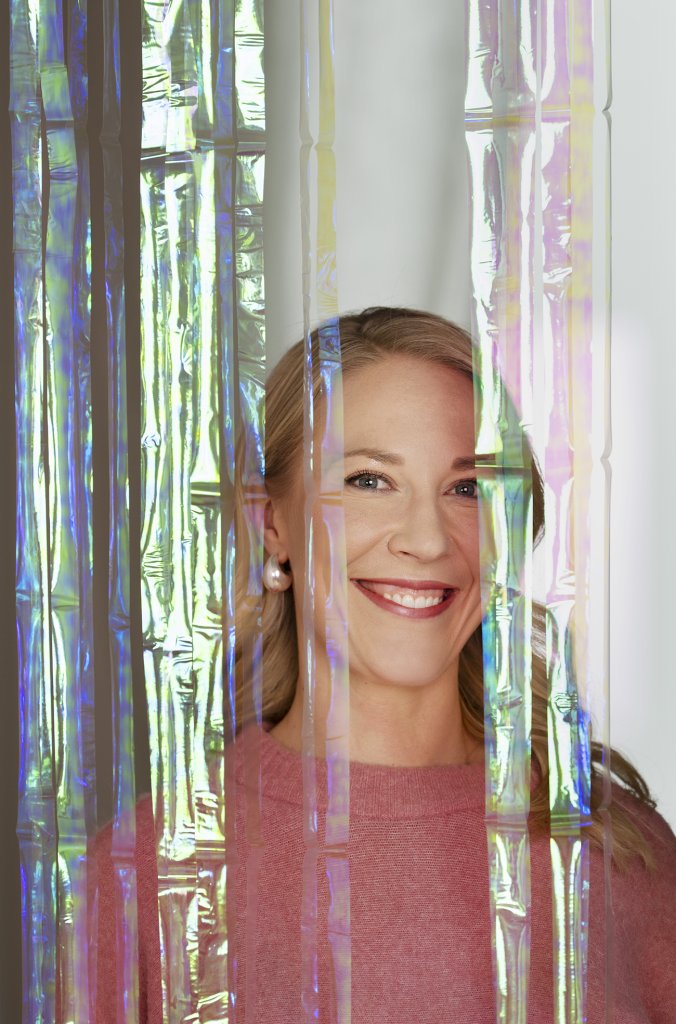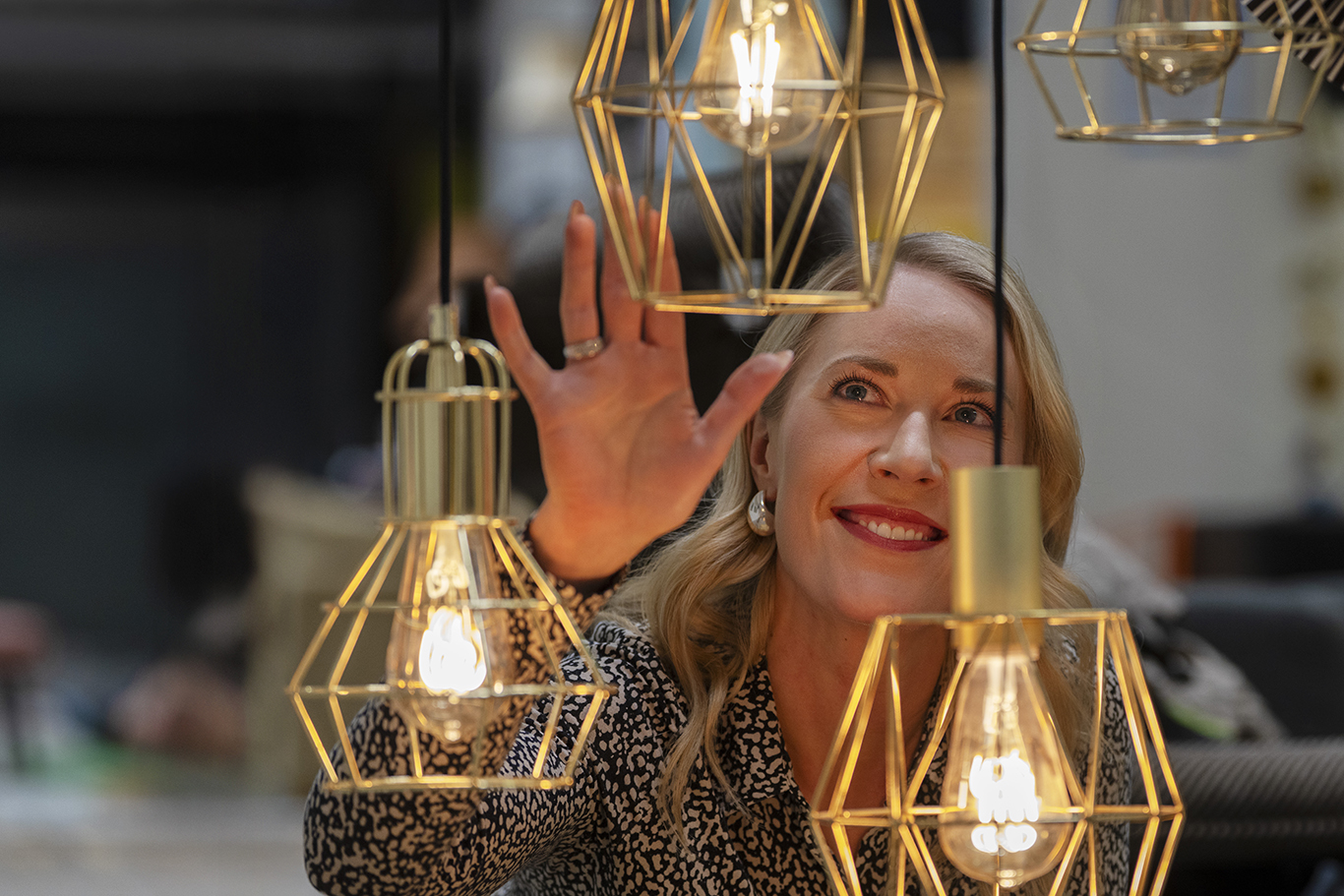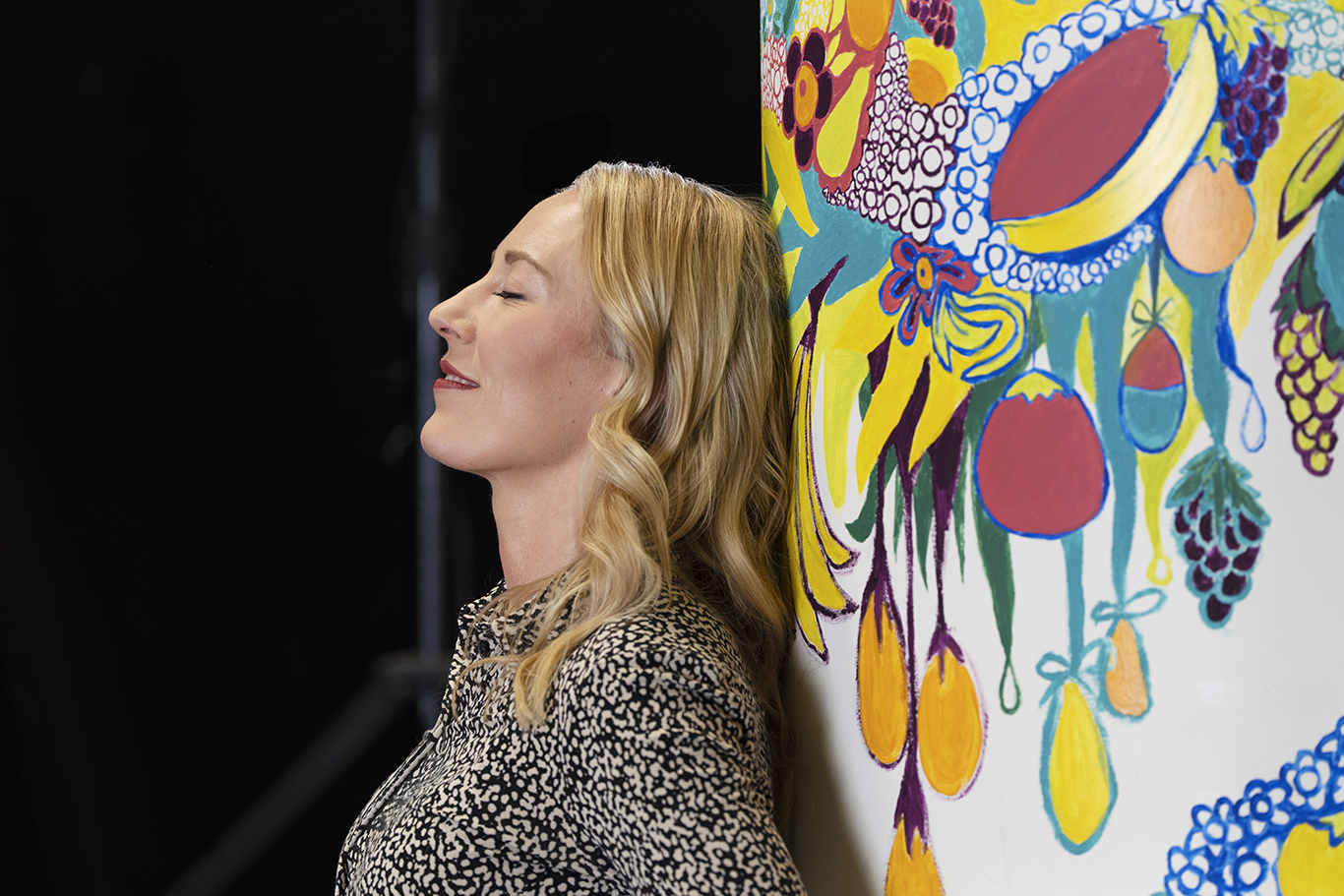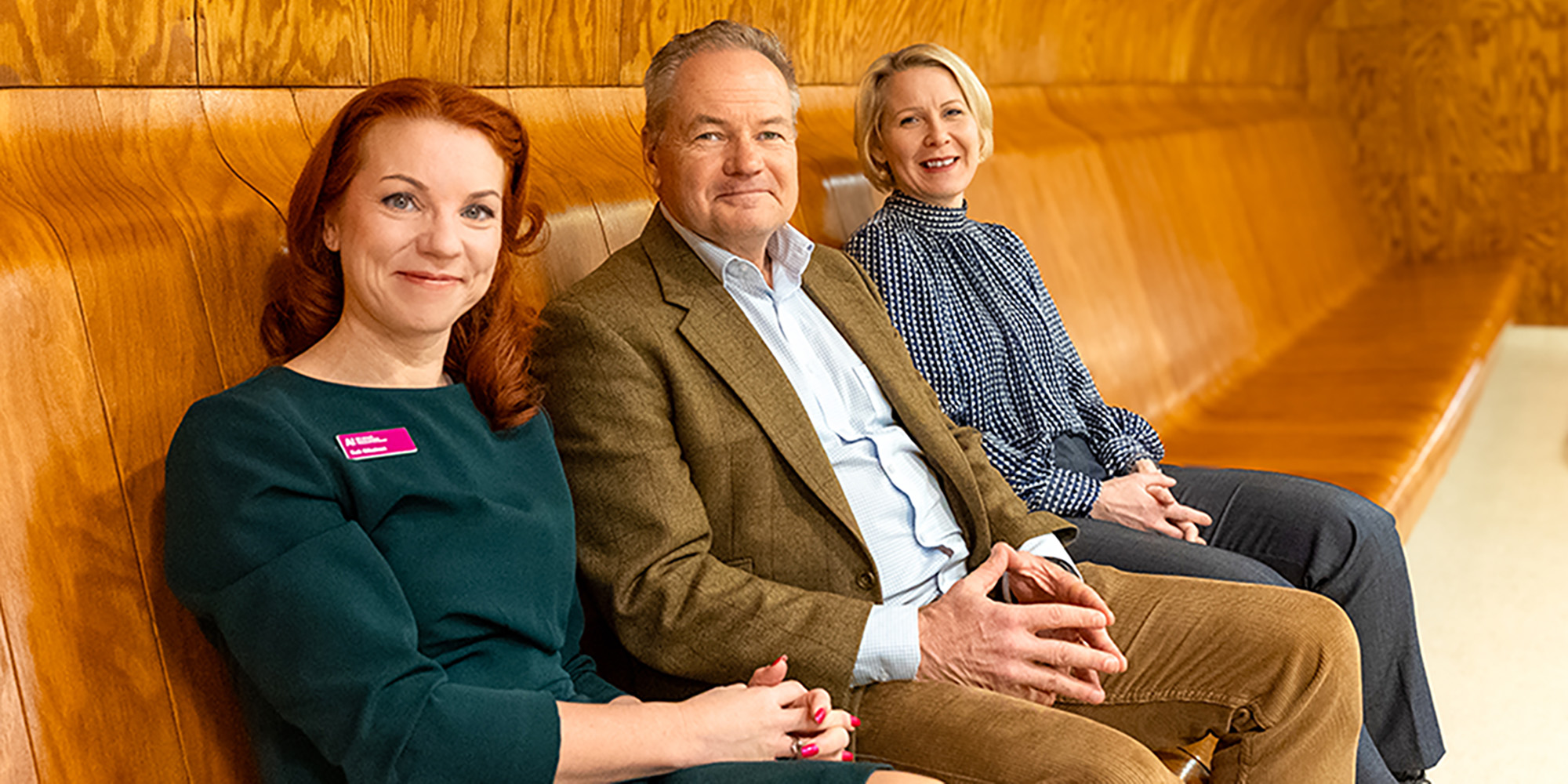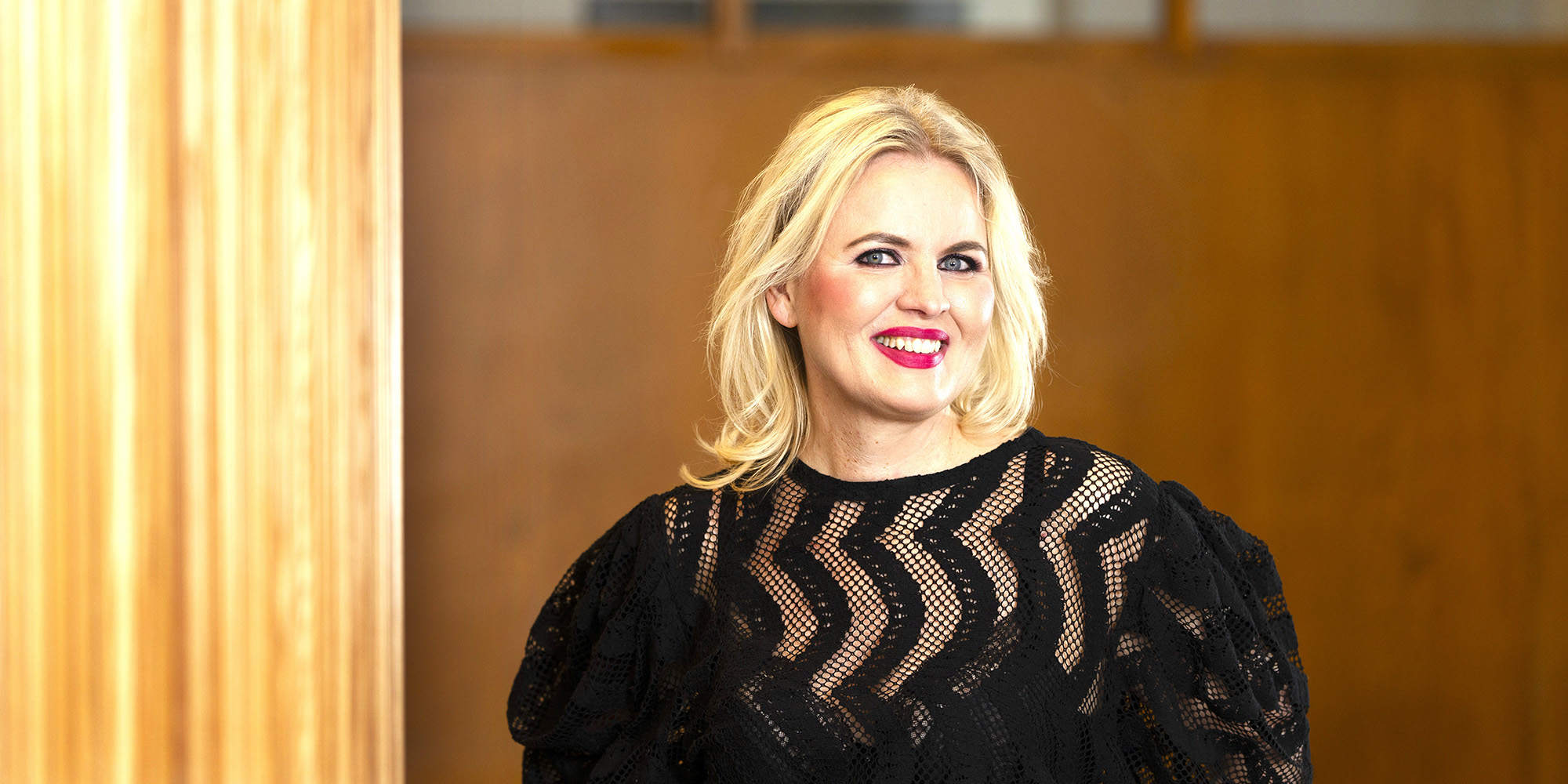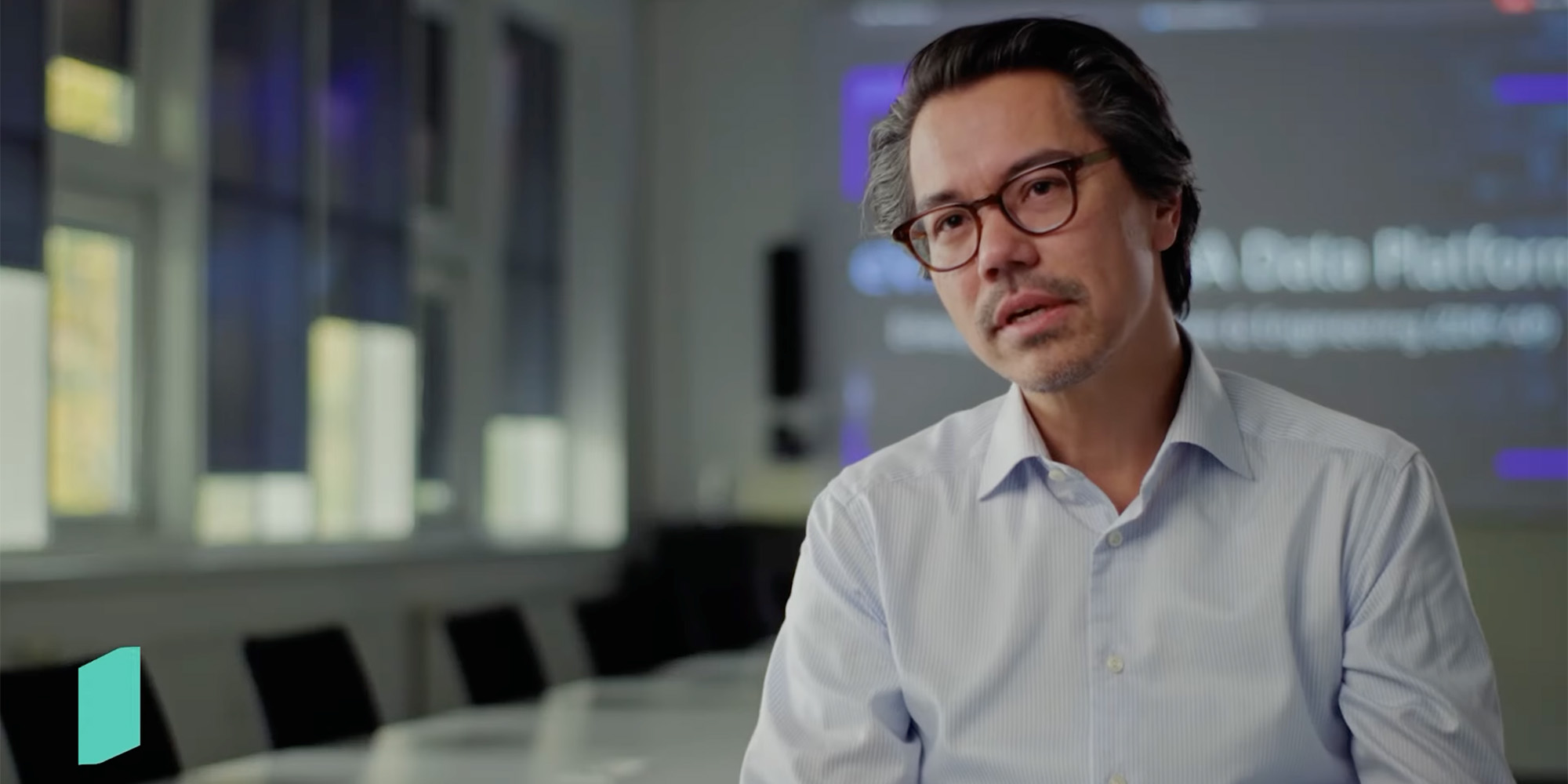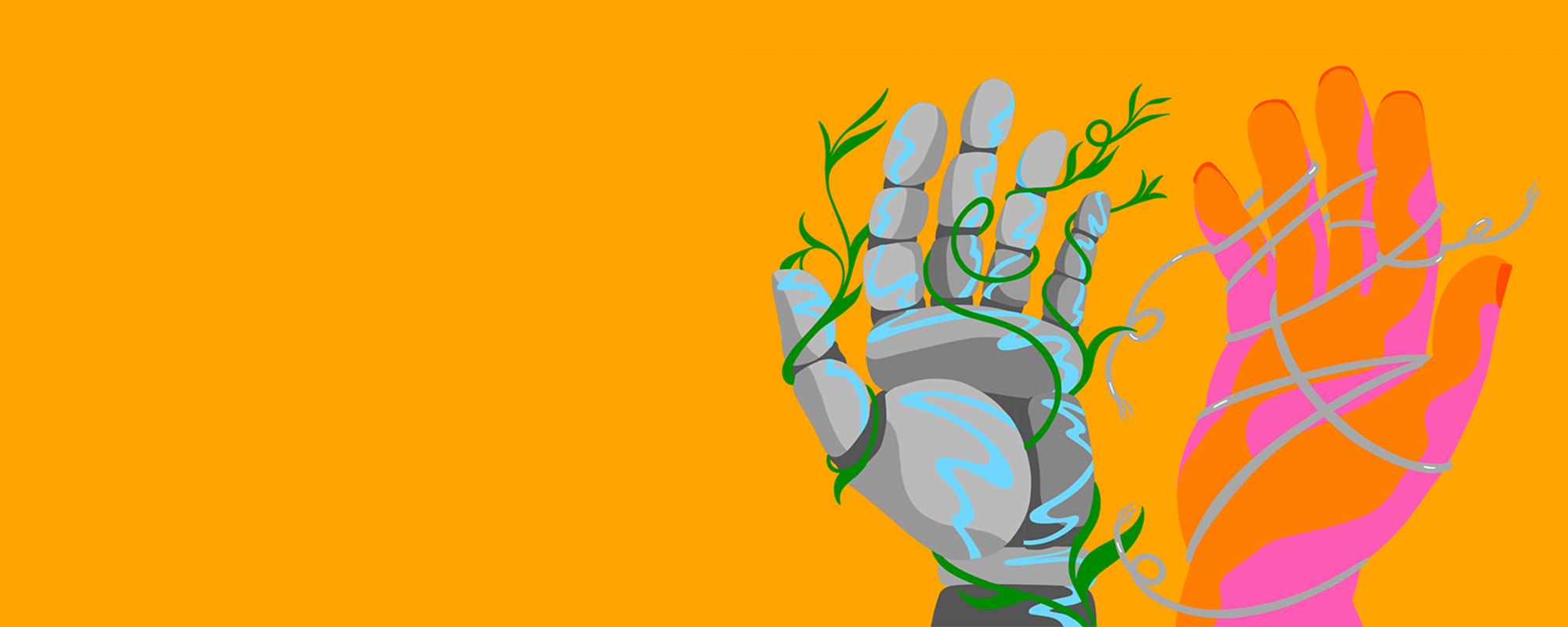In this article, we examine research findings that, if implemented, could enhance employees' well-being and boost their productivity. The research results are interpreted by psychologist and brain health expert Mona Moisala.
Recovering during the workday is an essential part of work
“For a long time, we’ve believed that you must be efficient and energetic during the workday and recover during your spare time. But our brain doesn’t function that way.”
Mona Moisala doesn't recall a specific moment when she realized that we don't recover enough during our workdays. At some point, she simply noticed that she had repeatedly heard the same comment: taking breaks sounds nice, but I don't have time for that.
For years, in newspapers, magazines, podcasts, books, and research articles, neuroscientists and psychologists have emphasized the importance of taking sufficient breaks from work. The problem is that knowledge alone doesn't change behavior, which is now reflected in global burnout statistics.
Moisala believes that our mental image of an efficient knowledge worker is flawed.
We imagine that a knowledge worker is efficient and productive only when sitting at a computer or in a meeting. Staring out the window, taking a walk, or napping during the workday seems lazy to us—or at least it sounds like something completely impossible to do.
In their 2017 non-fiction book, Draivi, Frank Martela, philosopher and assistant professor at Aalto University, and Karolina Jarenko, writer and leadership consultant, explained that increasingly, the work of experts involves staring at a computer screen rather than engaging in more physical tasks. Hence, we try to demonstrate our efficiency by staring at our screens even harder and by always being available and responding to work messages immediately.
We imagine that a knowledge worker is efficient and productive only when sitting at a computer or in a meeting.
However, neuroscientific research shows that the human brain does not operate like a machine. We cannot work focused and efficiently for eight hours straight, nor can we work at full capacity for a certain period and then switch to a rest state when the work is done.
Instead, our state of arousal fluctuates throughout the day. Therefore, it's beneficial to take a break when you actually feel the need for one—and to make room for such breaks and idleness throughout the day.
Our brain doesn’t stop working when we stop pushing and trying to get things done—quite the opposite, in fact, as it's precisely at these moments when we often have our best insights.
“For a long time, we've believed that you must be efficient and energetic during the workday and recover during your spare time. But our brain doesn't function that way.”
She points out that technology has always been thought to free up people's time for working less and more peacefully.
“However, it has always been the other way around. Artificial intelligence will certainly make many things easier, but my fear is that it will also lead to more clutter and projects to manage. The amount of fragmented work and jumping from one task to another will only increase.”
|
|
| The fast-paced and stimulating content keeps the brain in a state of high arousal. So forget 'doomscrolling' on your phone and do something that gives a break for your brain. |
If you don't recover enough during the workday, you'll be inefficient at work, the quality of your work will suffer, and in the evening, you won't have energy for much more than lying on the couch.
It's important to look at work culture more broadly than from the perspective of an individual to develop healthier working methods.
According to Moisala, we need supervisors who set a healthy example for their team members to lead a cultural change.
Humans are social animals: we tend to mimic the behavior of those around us, especially those in higher positions, to understand what is useful and acceptable in a given community or situation. Observing what happens around us comes naturally and is often unconscious.
“Supervisors may say, almost automatically, that you need to take breaks and that recovery is important. However, if it's not visible in their own day-to-day actions, it won't be effective," says Moisala.
“If you're glued to the screen and continue working in the evenings, the threshold for your team members to relax and take breaks is quite high.”
It's one thing to tell a team member that they can take breaks during the workday, and another to say that breaks are an essential part of the workday: without them, you can't perform well at work.
Neuroscience teaches us that a break is not a deserved reward, but a necessity if you want to be a good employee.
Supervisors may say, almost automatically, that you need to take breaks and that recovery is important. However, if it's not visible in their own day-to-day actions, it won't be effective.
What makes a good break?
Don't spend lunch breaks and the little moments between meetings with your phone in your hand. The fast-paced and stimulating content keeps the brain in a state of high arousal.
Many workplaces now have yoga mats, wall bars, or nap rooms. However, they often go unused.
“If you don't see others taking advantage of such facilities, the threshold for being the first to take a nap in the middle of the workday is high.”
The supervisor should use the break facilities themselves and remind team members about their existence during meetings.
In her 2025 non-fiction book, Tyhmä työelämä ("Stupid Working Life"), Moisala talks about Charles Darwin, the father of evolutionary theory.
Darwin used to work for a couple of hour-and-a-half stretches a day. Otherwise, he mostly focused on smoking his pipe, walking in his garden—and thinking.
If Darwin could afford to do this, shouldn’t we do the same?
Our attention span is getting shorter and shorter
"It's important to understand that an hour or two of focused working time is the most valuable working time an employee can have."
In recent years, many neuroscientists have expressed concern about how the internet and digital devices are influencing our attention spans. Moisala says that, according to some studies, we have the patience to focus on one thing at a time for less than a minute.
In an environment full of interruptions and noise, people work inefficiently. Time is spent on low-quality work, correcting mistakes, and trying to recall what you were doing and what you were supposed to do next.
At the same time, new research consistently shows the disadvantages of multitasking.
It is physiologically impossible for a person to, for example, focus on more than one linguistic stimulus at a time. In other words, you can't read an email while genuinely listening to what is being discussed in a meeting.
If you try to do that, your attention will jump from one thing to another, neither task will be done properly, and your brain will become overloaded.
Yet almost everyone multitasks. There must be something rewarding about the habit—something that makes you feel efficient, Moisala reflects.
|
|
| Almost everyone multitasks. There must be something rewarding about the habit—something that makes you feel efficient, Mona Moisala reflects. |
AI frees up the working time of knowledge workers from routine tasks. Moisala would like to see this time used for deep work, which means focusing on one thing at a time without interruptions.
The term was popularized by American computer science professor and non-fiction author Cal Newport in his 2016 book, Deep Work.
In Moisala's opinion, every knowledge worker should have the opportunity to work without having to be on call and available all the time. It is usually a matter of how we organize things.
“It is important to understand that two hours of focused working time is the most valuable working time an employee can have. They get a lot done when they can focus on doing one thing at a time.”
It's one thing to tell your team that they can sometimes reserve time for deep work and another thing to create ground rules that ensure that each employee has, say, an hour of focused time in their calendar every day, without meetings or the obligation to be available.
If booking time for deep work seems difficult, it is worth discussing whether a certain channel, such as a phone call, is used when you must get hold of someone immediately. Which channels are dedicated to slower communication?
Here's a suggestion for your next team meeting:
What communication channels do we use and how? What works for us and helps us achieve our organization's objectives?
Different teams may have different rules, as people are different. It is good to agree on things with a “people first,” not a “technology first” mindset.
Interruptions put the brain into alert mode. When the alert is constantly on and stress becomes chronic, a person can eventually burn out.
Our ability to concentrate is something that’s worth protecting.
Even if you don't think that notifications from your phone, for example, are distracting, they do put a strain on your brain.
The structure and logic of our brains are still largely the same as those of our hunter-gatherer ancestors, who lived in a very different environment.
A flashing light or a surprising sound captures our attention and takes our focus away from what we were doing. Our brains interpret unexpected stimuli as potential threats. It has been crucial for the survival of our species to pay attention to them.
Nowadays, various stimuli in the environment—traffic jams, annoying fellow humans, a flood of notifications, a full email inbox, etc.—are usually completely harmless, but they are everywhere.
Interruptions put the brain into alert mode. When the alert is constantly on and stress becomes chronic, a person can eventually burn out.
Exhaustion is insidious because the brain can gradually get used to the load, and a constant state of alert can begin to feel normal.
“The brain still doesn't learn to tolerate it any better. We don't notice that the overload develops slowly before the whole system locks up and we're burned out.”
The ability to concentrate is a prerequisite for high-quality thinking, Moisala reminds us. If the mind is constantly distracted and restless, deep thinking—which is still a unique characteristic of humans—becomes impossible.
We don't notice that the overload develops slowly before the whole system locks up and we're burned out.”
Emotions are an important part of work
“We have a vast amount of research showing how emotions and cognitive functions like problem-solving and decision-making are constantly interacting.”
After years of speaking at workplaces about well-being, Moisala realized that it's typical for us to discuss cognitive skills, concentration, and problem-solving in the context of working life, but we rarely talk about emotions.
“Often, when I've been asked to give a presentation at a company, the representatives of the company have mentioned during planning meetings, ‘Hey, FYI: we are currently in the middle of change negotiations, or we've just gone through a massive organizational change and our people are quite dissatisfied.’”
Management has often discounted the affects of emotions, for example, how the work community should be approached or how receptive they are to new information.
Many people still believe that emotions do not belong in the workplace and that they interfere with rational thinking—or that, for example, women are overly emotional.
“It’s as if showing emotions is a sign of weakness. But could we instead think that if those emotions are expressed and processed, they no longer burden the cognitive system?”
|
|
| Emotions play an important part in how we function. Why are we still so afraid of the emotional reactions of others? |
It’s artificial to try to separate emotions and cognition, Moisala says.
“We have a vast amount of research showing how emotions and cognitive functions like problem-solving and decision-making are constantly interacting and influencing each other.”
This has been observed by, among others, the well-known Portuguese American neurologist Antonio Damasio.
One of Damasio’s most famous patients was “Elliot” whose brain tumor destroyed part of his brain’s frontal lobe. After suffering brain damage, “Elliot” did well on intelligence tests but became unable to experience normal, strong emotional reactions.
As a result, he was no longer able to make short- or long-term plans or even simple decisions. He could list different options but couldn’t decide which one to choose: none of the options felt specific.
The man who used to be pleasant, charismatic, and interested in what’s going on in the world became a person who was unable to complete the projects he started, lost his job, and divorced several times.
Emotions are important and should not be ignored, Moisala reminds us. They feed important information into the brain’s decision-making system.
They also affect learning. Neuroscientific findings show that events that evoke emotions remain in long-term memory longer than other memories. The amygdala, which regulates and processes emotions, is connected to the hippocampus, the “memory center” of the brain, and the amygdala's functioning affects the consolidation of memories.
“Emotions are often a sign that something is important in one way or another. It’s the brain's way of sharpening our attention,” Moisala says.
Emotions are often a sign that something is important in one way or another. It’s the brain's way of sharpening our attention.”
Talking about emotions or developing emotional skills does not mean that we should ruminate and dwell on emotions.
If you experience anger or disappointment at work, it is important to be able to recognize and name the emotion. But it is even more important to understand what is behind the emotion.
“Often, the emotion signals an unmet need. For example, you may feel that you have been treated unfairly in the work community. Instead of getting angry and venting it out, it is good to look a little deeper: what is this emotion trying to tell me?”
When you know how to communicate your needs to another person, it becomes possible to resolve a problem or conflict.
At first, this kind of action may seem awkward, but the more often you do it, the easier it becomes, Moisala reminds us.
“A supervisor can once again be the person who shows by their own example that it is safe to talk about emotions and bring them up in the work community.”
An emotionally intelligent person knows how to regulate their own emotions and does not, for example, behave aggressively or otherwise inappropriately when they are angry.
Moisala says she has thought a lot about why we are so afraid of the emotional reactions of others. For example, the sadness or anger aroused in a coworker or team member can easily cause discomfort in oneself if one is not used to receiving the emotions of others. However, this skill can be practiced.
Nowadays, children learn emotional skills already in kindergarten and school. Moisala, a mother of two, has realized how skillfully children can express their emotions—much better than many adults.
She believes that younger generations will also bring emotional skills to working life in a healthy way.
|
|
Our brains differ from each other—and that's a strength
"What works for one person doesn't necessarily work for another."
One thing that frustrates Moisala: Generic tips for better concentration or efficient work.
“It goes without saying that what works for one person doesn't necessarily work for another. There is such a wide range of different personalities and different brains represented in working life.”
We already speak a lot about neurodiversity. Yet our understanding of what an employee who does intellectual work looks like is narrow: social, open, brave, dynamic, able to do many things at the same time, Moisala lists.
Few fit the mold, but different people are often expected to do the same things, process information in the same way, and adapt to similar ways of working.
This leads to the fact that many people don’t dare to be themselves in the workplace or to speak honestly about their challenges or wishes.
Few fit the mold, but different people are often expected to do the same things.
Before writing her recent book, Moisala did not know that, after receiving a diagnosis of ADHD or autism spectrum disorder, most people remain in the closet at work for fear of being stigmatized.
“It would be great if there was more room for individuality, but that requires trust.”
The role of supervisors is again important.
“I heard a really encouraging example of a supervisor who had told their employees that they had ADHD. It had immediately helped the employees understand the team leader’s certain ways of working and of course built a huge amount of trust.”
Everyone’s brain is unique in the sense of what kinds of neural networks and connections they have in their brain. Individual experiences shape those connections throughout life.
Moisala would like to see the idea that everyone should adapt to the norm turn into an understanding that neurodiversity has strengths. No one is an average person by all standards. Everyone perceives the world in a unique way.
Research has shown that teams with different skills, knowledge, and strengths, in which it's OK to make use of this diversity, make better decisions and innovate more.
Besides, often considering different people and their needs ultimately benefits everyone.
For example, people on the autism spectrum may need clear communication, sharing the agenda well in advance of the meeting, clear rules and processes, and a quiet and peaceful work environment—the same things that others would benefit from.
When a supervisor is open and genuinely interested, they create a psychologically safe atmosphere with their interaction. Then team members dare to talk about themselves and how they would like to do their own work.
Moisala's former supervisor once asked how you would like to be led.
“That was a great question—and I had the answer ready right away!”
